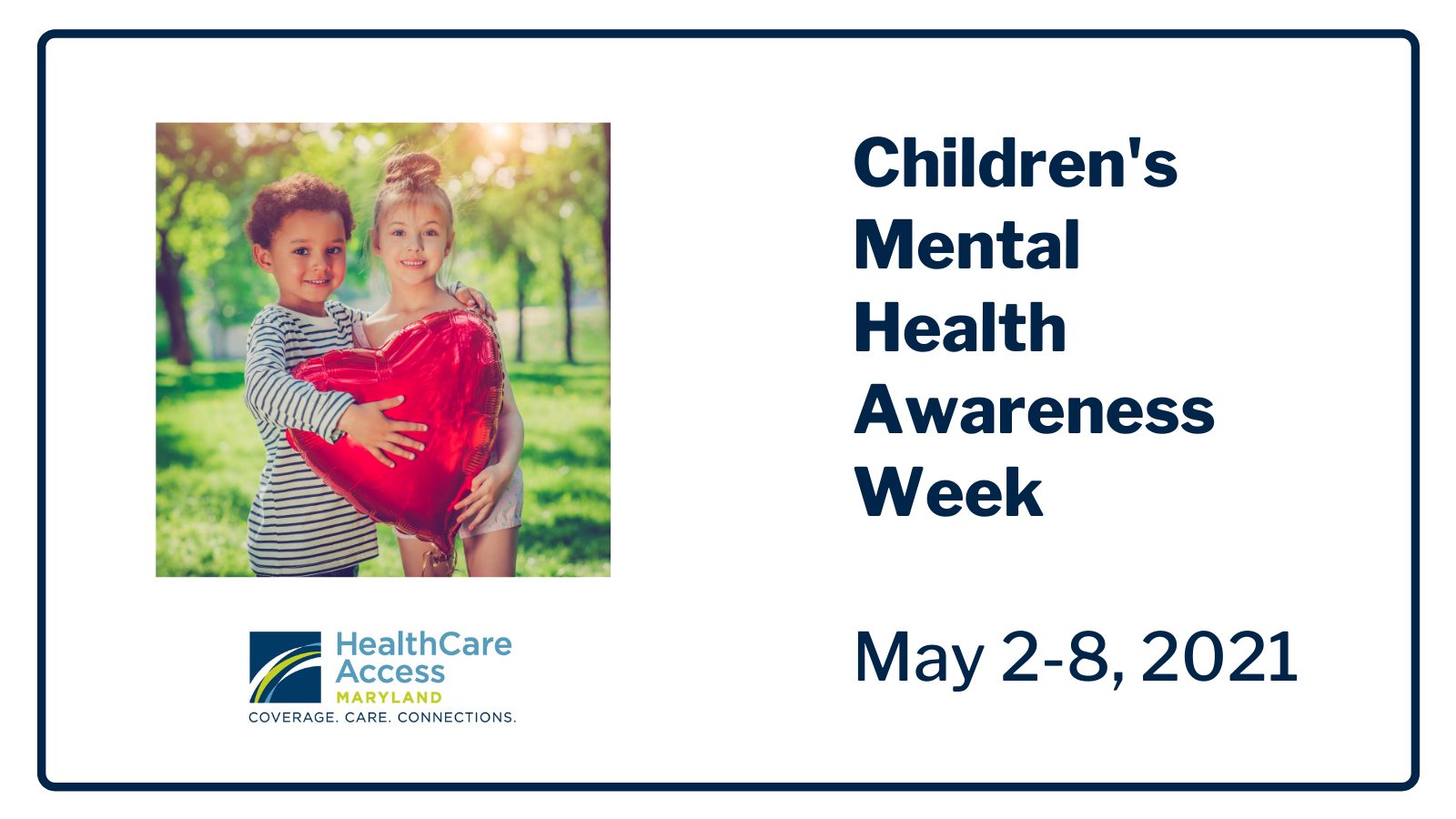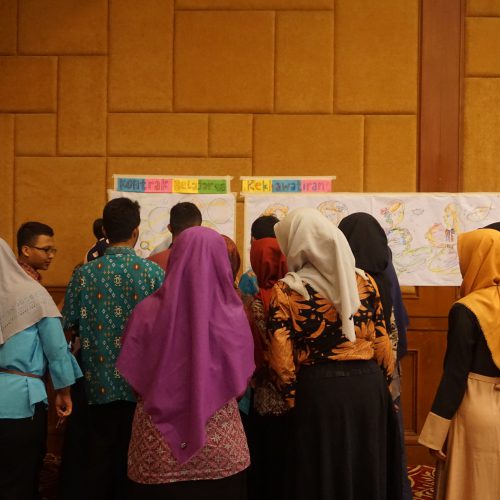 Contributed by guest blogger Jenene R. Washington, MD, MBA, FAAP, Pediatric Medical Director of HealthCare Access Maryland’s MATCH program
Contributed by guest blogger Jenene R. Washington, MD, MBA, FAAP, Pediatric Medical Director of HealthCare Access Maryland’s MATCH program
The COVID-19 pandemic has put a strain on all aspects of our lives. It is important also to understand, and not ignore, the toll the pandemic has on our children. During Children’s Mental Health Awareness Week (May 2nd-May 8th), we want to share important information for parents and caregivers as they navigate supporting their children’s physical and mental wellbeing through this challenging period.
The American Academy of Pediatrics (AAP) provides excellent information supporting children’s emotional health during this stressful time. We list a few highlights below.
- Your young child may have a regression of milestones like sleep patterns and toileting. Older children may display irritability, aggression, concentration disturbances, change in appetite and even substance use. You may even identify a change in school performance or withdrawal from family activities.
- Identification of these and other concerning signs warrant a conversation with your trusted pediatrician or healthcare provider. Most healthcare providers have encountered these COVID-19 related adjustments, emotional and mental health challenges, and have resources to assist you and your family. Your healthcare provider will be able to assist you in understanding if these new observations of your child’s behavior warrant further evaluation by a mental health professional, or if you and your family can use supportive techniques with your child.
- The American Academy of Pediatrics has supported the use of mindfulness and meditation for children and families to help manage environmental stress. These mindfulness techniques include but are not limited to include breathing, movement (e.g., yoga), and prayer/centering voice. These techniques can be taught to children of all ages. These techniques have been found to have positive effects on attention, behavior, and even somatic illnesses, like high blood pressure and pain.
- Your child’s healthcare provider may also recommend offering your child more opportunities to be creative and communicate their feelings. Some examples include sharing a visual or performing art with friends or elders in the community. Writing traditional letters and sending to a “pen-pal.” Starting a journal or a vision board may also allow your child to explore and share their emotions.
Most importantly, understand that changes in behavior and emotion are to be expected during times of uncertainty and inconsistency. Stay aware and in-tune with your child’s emotional health and begin to adopt mindfulness techniques and communication strategies into your daily routine with your family. This will build the foundation for lifelong resilience.
About the Guest Blogger:
Dr. Washington, who is also Principal/Owner of Renaye James Healthcare Advisors, is a board certified, practicing Pediatrician who has over 20 years of healthcare experience and over 15 years of success in practice management, practice transformation and operational excellence of healthcare organizations.
Renaye James Healthcare Advisors, an outcome-based healthcare advisory company, has been a partner of HCAM’s and joins us as a sponsor of our upcoming May 18th Speaker Series event: Re-thinking Mental Health: Workplace Equity for Communities of Color.






